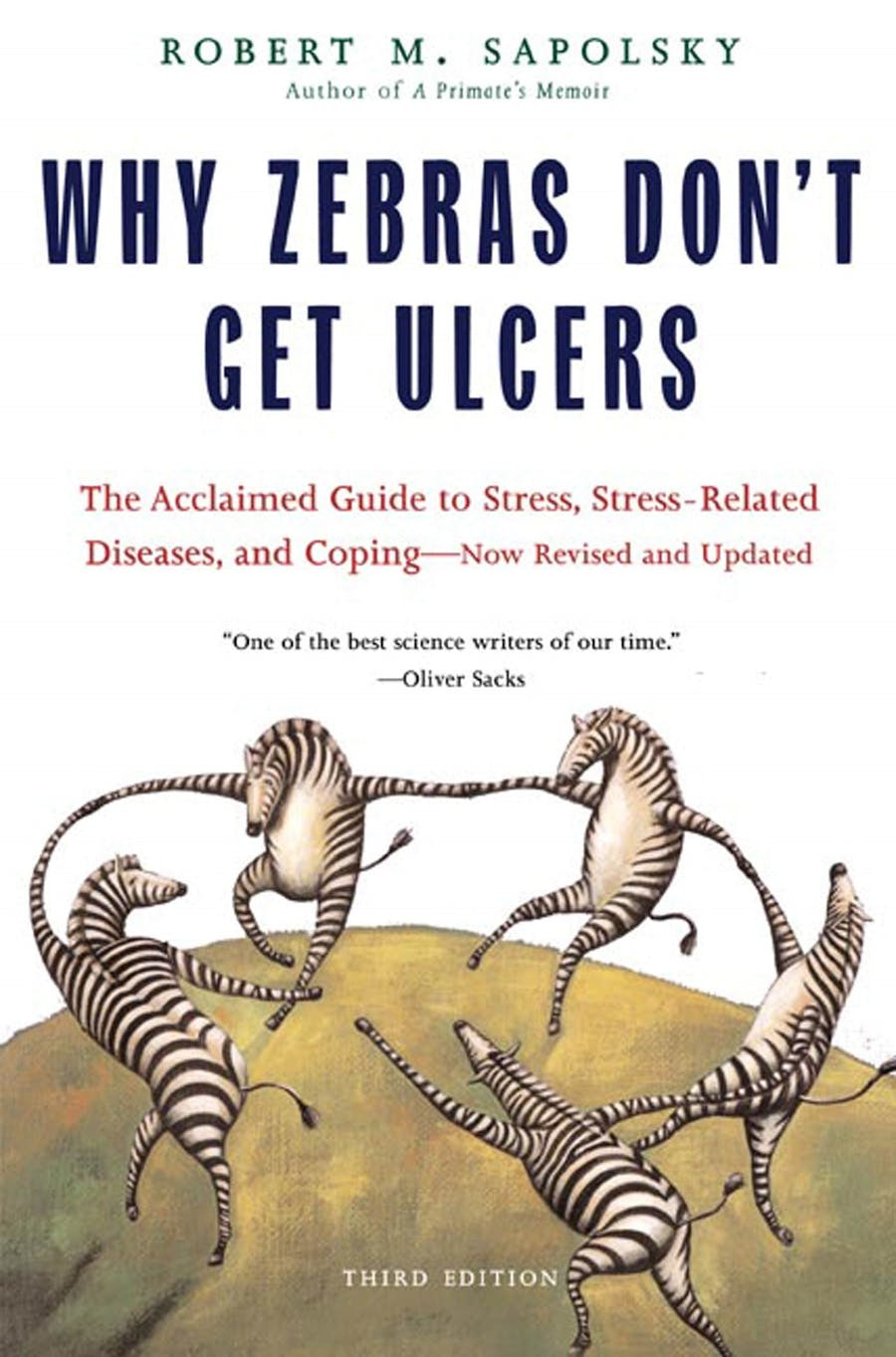I think about managing stress all of the time. It’s not good, but I try to use it to my benefit. I am ambitious and I push myself hard, I bet you can relate. This, coupled with a natural tendency to worry about everything causes me a lot of stress. In fact, my classroom nickname in 2nd grade was “worry wart,” I was a child prodigy at mastering worry, and I brought this worry into too many areas of my life. This “talent” is a significant contributor to my lifelong quest for tools for well-being.
Research and experts tell us that though some stress is good for you, and I know it contributed to my professional success and to many positive aspects of my life, it is also a significant contributor to physical illness and mental distress. Stress can be a major roadblock to our desire to thrive. We need to learn to manage stress while we’re experiencing it so that it doesn’t affect us as badly as it could. And when I stumbled upon this gem of a book that offers real tools to address my questions of “What do we do about it?” and “What are the best coping strategies to put in place to live with and leverage stress?” I realized I just had to share it with you in this forum. Author Robert M. Sapolsky is a professor of biology and neurology and thus offers a different perspective with new research and deep wisdom on how the body (human and animal) actually works. With his hard-earned knowledge and analysis, Sapolsky provides excellent advice around managing stress through a sense of control, predictability, activity, and our favorite, social support.

I came across this analysis from Dan Shipper, and I think it’s super helpful:
What do we do about it?
“This is a really interesting nugget from the book: stress isn’t mathematical. Expose the same person to the same stressor, and they will have different stress responses based on their coping strategies. If you want to live a life where you’re pushing yourself, it’s best to develop a variety of coping strategies to help you manage the accompanying stress.
Here’s what Sapolsky recommends:
Increase your sense of control
If you put a human in a room where loud noises are going off, you’ll activate their stress response. If you give the human a button to reduce the volume of the loud noises, they’ll be less stressed—regardless of whether they even use the button.
Just knowing you have the option to reduce stress is enough to make something less stressful—even if you’re not actually controlling the stressors at all.
It’s why the first few sessions of therapy are often so powerful for patients. You’ve finally found a way to manage how you’re feeling, even though you probably haven’t changed too much about your life.
When you’re facing mild to moderate stressors, ask yourself, How can I increase my sense of control in this situation? You might find there are simple answers that will make you feel a lot better.
Increase your sense of predictability
Rats that are exposed to repeated electric shocks are more likely to get ulcers. But if you ring a bell before you administer the shock—making the shock more predictable—the rats are less likely to develop them. If you make the stressor predictable, you only have to get stressed right before it happens. That means you’re not stressed the rest of the time, so the stress response doesn’t wreak as much havoc on your body.
Making the stressors in your life more predictable can have a similar effect. When CEOs keep the same routine every day, that's the benefit of predictability in action.
Of course, we can’t make our lives totally predictable (and, in fact, that wouldn’t be desirable). But the more you can expose yourself to stressors in a predictable way, the better off you’ll be. For example, maybe only check email a couple of times a day.
Create outlets for frustration
When rats that are exposed to repeated stressors are given a piece of wood to gnaw on, they are far less likely to develop ulcers. Outlets for frustration are another important coping mechanism for stress.
There are many unproductive outlets—for example, taking things out on your partner or a co-worker. But there are also many productive ones, like exercise or journaling. Making a list of outlets and returning to them, again and again, can reduce the havoc that chronic stress can wreak on your body.
Increase social support
Social support is the last coping strategy on the list, and it’s perhaps my favorite one.
If you give a primate a stressor in the lab, you’ll find elevated markers of stress in its blood and manifested in its behavior. But give the primate a stressor when it’s surrounded by friends, and its stress markers will be lower, even for the same level of stressor.
The same thing happens in humans. For example, in one study, parents of children who have been killed in war were no more likely to get disease or die—except if they were already widowed or divorced.
Creating a vibrant sense of social support can put an unmanageable stressor into perspective and help keep it under control. Without social support, even small things can set us off in ways that are unproductive and unhealthy. “
🧪I just love it when I read some useful and actionable advice. Interested in more tools? This all complements and strengthens what we share at Monumental Me, find our Reset Program as a start to implementing some coping mechanisms today, click HERE.
Be well.
🧡Liana



